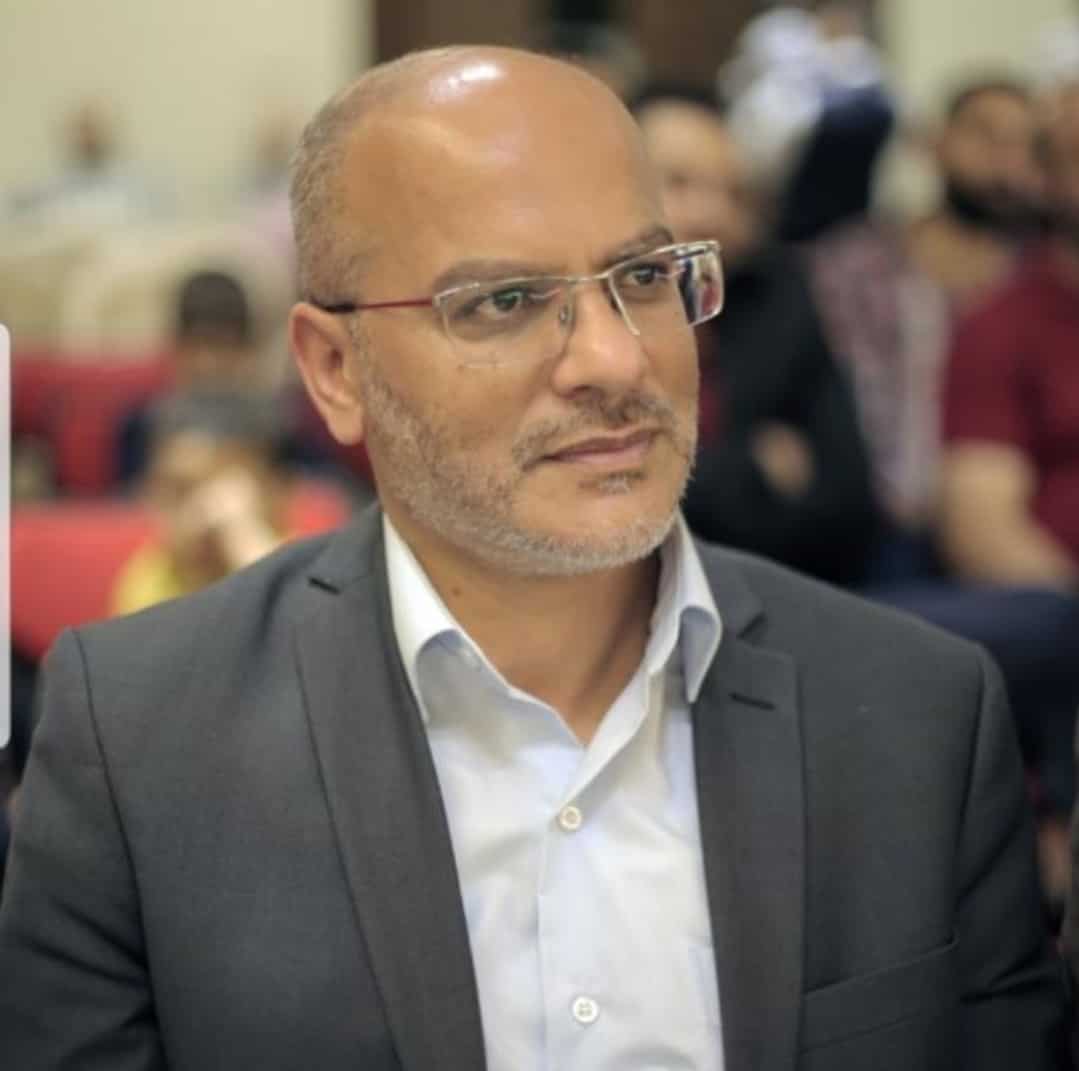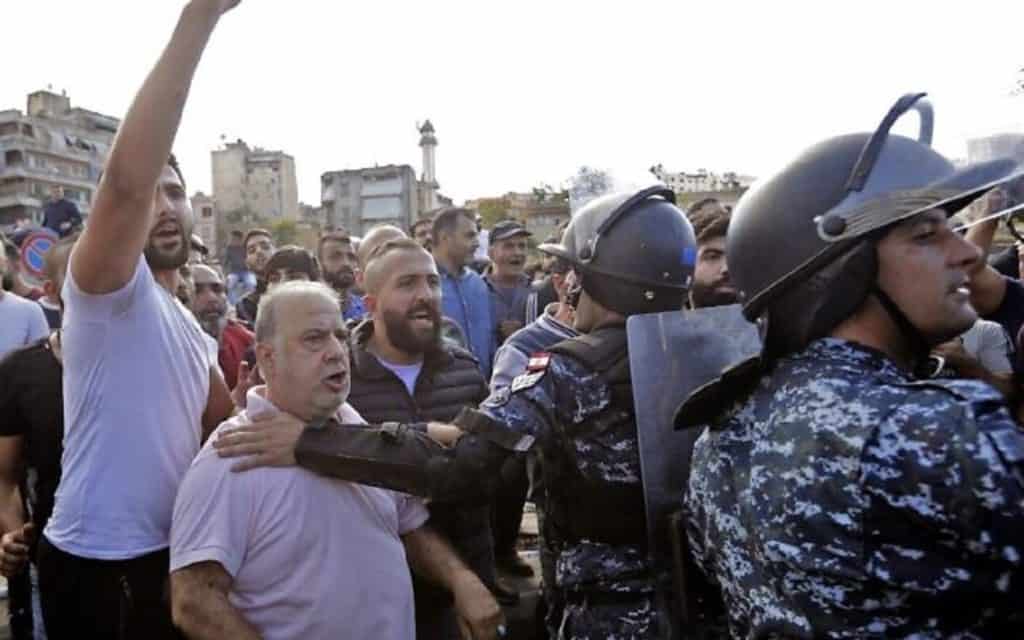Denis Korkodinov – Interview with Jihad Al-Maghribi
On October 30, 2019, Lebanese Prime Minister Saad al-Hariri resigned due the mass protests caused by the unpopular economic reforms of the Government of National Unity. Therefore, the resignation of Saad al-Hariri does not remove the demands of protesters insisting on the fulfillment of the state’s social obligations. In this regard, in Lebanon, there is still a threat of social unrest escalating into a civil war, in which Hezbollah may occupy a leading position.
Especially for World Geostrategic Insights, we talked about this with Lebanese political expert Jihad Al-Maghribi.

1. As a result of the resignation of the government of Saad al-Hariri, Hezbollah was in a rather difficult situation. On the one hand, the organization, despite the obvious victory of the protesters, cannot openly consolidate with them in order to maintain freedom of power. On the other hand, she is not ready to accept the defeat of the Lebanese Prime Minister, since she is part of the public administration system, which is opposed by participants in mass demonstrations. Under such conditions, Hezbollah, in my opinion, has several options. First option: despite the resignation of the Government of National Unity of Lebanon, Hezbollah can still forcefully suppress a protest under the guise of any provocation. This will gain time to mobilize forces. But this will not solve the problem of protest, the participants of which do not intend to disperse until a new cabinet of ministers is formed that will fully satisfy the socio-economic and political expectations of ordinary Lebanese. Second option: to accuse the organization of forcing Saad al-Hariri to resign, for example, Israel and start a war. This will distract local patriots from internal problems and focus public attention on external threats. But this also will not solve the problem of protest caused by the impoverishment of the local population. And as a result of the war, Lebanon’s economy could finally collapse. The third optionis a sharp economic growth. But this is unlikely, since all the economic opportunities of official Beirut are completely exhausted, and the new government needs at least new sources of resources and time, which is no longer in Lebanon. In this regard, what option will Hezbollah choose after the resignation of Saad al-Hariri? Does Hezbollah have a chance to compromise with protesters? How will the protest movement in Lebanon develop further?
– The first two options are unpromising, because in reality they do not solve the problems of the protest movement, but, on the contrary, exacerbate them. Meanwhile, the third option is quite logical. However, if we analyze the activities of the Hezbollah party, we will determine that it is built, first of all, on the basis of military security and, among other things, pursues the goal of political interaction with public authorities. It is also part of a protest behavior strategy that has been clearly demonstrated during recent demonstrations in Lebanon.
In turn, Hezbollah has an Iraqi scenario as a good example, where the main method of dialogue with protesters is the brutal suppression of any attempts to counter the current political regime. In addition, do not forget that the Lebanese protest is focused on the attention of the Iranian leadership, who is not interested in the protesters, including slogans, on limiting the influence of the Ayatollah regime in Lebanon, winning. In the end, this could cause significant damage to Tehran’s interests.
Therefore, in spite of the fact that economic growth would be a logical way to neutralize the protest, Hezbollah will most likely use the first option that you have presented – severe suppression of the demonstrators.
It is worth noting that the Lebanese government and Hassan Nasrallah fear that the nascent protest movement could lead to a protracted civil war. An example of this is already in Syria, where Bashar al-Assad tried to flirt with the protesting crowd and this led to a large armed conflict, which continues to this day. And this is exactly what Hassan Nasrallah fears. Therefore, he will not make any compromises with the protesters. He will simply try to crush them with brute force. Of course, such a development of events will lead to chaos, which, however, will not be sinister for the state compared to what could happen if the protesters can still provoke a civil war.
2. More recently, officials, and in particular Lebanese President Michel Aoun, have argued that Beirut cannot afford a political vacuum at a time when the state economy may be on the verge of collapse. However, despite this, on October 30, 2019, the government of Saad al-Hariri resigned under pressure from the protest movement. Does this mean that under the present conditions, most of the Lebanese politicians are confused and do not know what to do next?
– Of course, most Lebanese politicians are so confused that they don’t even know how to correctly evaluate the events in Lebanon. They are afraid of revolution. However, the revolution is now unlikely to happen, as the government of Sa’ad al-Hariri resigned voluntarily, avoiding large casualties. At least that was entirely appropriate.
3. The protests in Lebanon created the basis for a split within parliamentary blocs. In particular, amid social unrest caused by the unpopular actions of the Lebanese government, the activities of the parliamentary coalition Strong Lebanon, led by Foreign Minister Gebran Bassil, turned out to be almost paralyzed. The reason for this is that the deputies Chamel Rukoz and Nimat Frem sharply criticized the president of the country and actually supported the protesters. Does this fact indicate that Lebanon was on the verge of a deep domestic political crisis?
– Naturally, in Lebanon there is a systemic problem, as well as a political and economic vision, which requires radical changes so that Lebanon can develop normally. Moreover, the issue of early parliamentary elections is not a dilemma, because at the moment the most important dilemma is the question of how the new election law will be implemented. This law was drafted by the government and approved by the House of Representatives, but it is criticized by ordinary Lebanese who believe they have been tricked. In particular, people are of the opinion that the new election law does not change anything in the system of state administration, and therefore, corrupt politicians will be replaced by the same corrupt politicians.
For this reason, the new election law should be repealed and replaced by another law, according to which political divisions and religious differences will be eliminated. This could lead to a partial, but very important change in the process of building a new Lebanese regime.
4. At the moment, the most striking message from Lebanon from one of the protesters Joseph Nemr is the following: “If there is a revolution, let it be … revolution lies at the heart of the Lebanese people.” Does this message reflect real sentiment in Lebanese society? Is there a sharp imbalance between power and society in Lebanon? Is the government of Saad al-Hariri able to neutralize social protest in the present conditions or is it already impossible?
– I think that now Lebanon is not experiencing a revolution, but just an expression of protest caused by complex socio-economic reality.
One of the internal factors of this protest was dissatisfaction with the economic reforms of the current Lebanese government. However, the nature of the country’s political landscape always makes the participation of external forces relevant. This external participation is gradually turning into the main argument, which may affect the course of the protest movement.
5. Information about impending social unrest in Lebanon was disseminated on the social networks of the Internet (including the WhatsApp protest), at least 3 days before the start of the rally. Currently, more than 200 people are already active in the protest movement, among which not only representatives of the Lebanese opposition play the most active role, but also opinion leaders from Saudi Arabia, Egypt, Iraq, Libya, and Jordan. Does this indicate that some destructive groups of international influence support the Lebanese protest? What do you think about this? Who is behind the organization of social unrest in Lebanon?
– Lebanon is traditionally vulnerable by nature to outside interference. Therefore, all parties involved in the conflict, without exception, but against the idea of conspiracy of external players. However, the root cause of the protest is the accumulated resentment for the incorrect and inhumane socio-economic reforms of the Lebanese government. It is noteworthy that both internal political parties and some members of the international community want to take advantage of these problems. It is they who are trying to foment a social conflict in Lebanon in order to ultimately solve their own problems.
Image Credit: ANWAR AMRO /AFP







